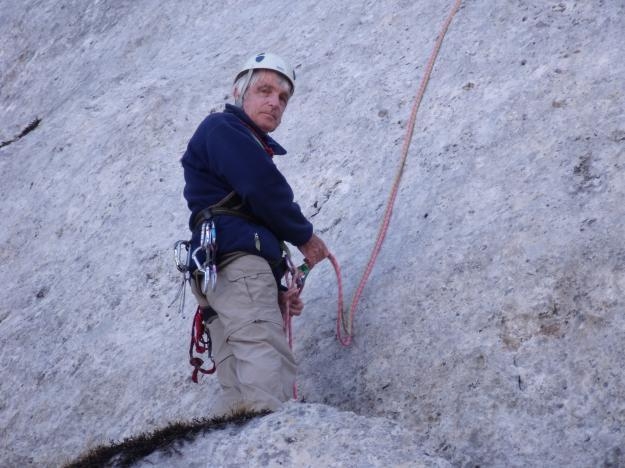In defence of alpinism, the speech by Bernard Amy to the Italian Academic Alpine Club

 1 / 1
1 / 1 archivio Bernard Amy
archivio Bernard Amy
Those who know me will not be surprised to learn that I want to explain why I consider it such an honour and a pleasure to be welcomed into the club. And I would like to illustrate this by discussing the ongoing problems with the current evolution of mountaineering.
In the last decade or two, mountaineering has evolved considerably under the influence of various economic, technical and social factors. In particular, there has been a rapid diversification in the forms of mountaineering. In both the classical and new approaches to mountaineering, new cultural sensitivities have arisen among the practitioners.
At the same time, the society in which mountaineering practitioners are living has also changed dramatically. In response to growing social problems, anxiety about security has developed, accompanied by an increasing questioning of individuals behaviour. The obsession with security has led in particular to the increasing application of the precautionary principle.
Together these two developments - the changes in mountaineering practices, and in society - lead us to say that we need to redefine the social contract which had been more or less established between society and mountaineers.
As a consequence, it is now more than ever necessary to explain, rather than justify, mountaineering. We must not try to state the reasons why we are ready to risk our lives in the mountains, why we "enter" mountaineering almost as a sort of religion (individual motivations for mountaineering are definitely personal, they may even require psychoanalitical justification and are of little interest for the general public; above all, they don't serve to justify mountaineering). Rather, in order to have mountaineering accepted as a risky activity, we must explain what the mountains give us and what we learn from them. In other words, we must not try to explain why we go to the mountains, but what we find there.
The practice of sport in the mountains teaches us what can be called the social benefits of mountaineering. They are of social as well as psychological nature.
Among the "useful" aspects and contributions of mountain sports we can cite:
- the development of our capacity for enterprise and initiative
- developing courage through reasoned risk taking
- the capacity for autonomy and the feeling of responsibility
- the appreciation of the values of solidarity
Concerning the contributions at a psychological level, mountaineering promotes:
- self-confidence
- character development
- self-control, in particular of our aggression
- socialization.
(The French climber Robert Paragot said: " Mountaineering allowed me to grow. Without the mountains, I may have become a thug. ")
Mountaineering also often has a therapeutic effect, since it enables a detachment from personal problems. It can improve our equilibrium, by giving a relative appreciation of psychological difficulties (a mountaineer psychiatrist called Mont Blanc "a day hospital". He added… "Better heal oneself up there than in bars!")
All these benefits, that mountaineering gives us, are produced to a great extent by two psychological processes which are typical of mountaineering:
- Physical elevation is always associated with a symbolic elevation. The young man who, looking down to the valley, sees himself so much higher than the others, feels for a moment stronger, stronger than the others down there and stronger than he was before leaving the valley.
- The collective facing of risk - in the mountains or on his return to the valley the mountaineer is rarely alone – fosters a social recognition which reinforces the feeling of strength and self-confidence (all mountaineers to an extent seek this social recognition: did any of us, on his return from an ascent in the mountains, refrain from telling the tale ?).
These two processes in the development of one's personality are important at any age.
Like all passions, the passion for mountaineering is characterized by a permanent element of doubt, a continuous questioning of oneself about the sense of the activity. Be he young or old, a mountaineer needs to feel strong. For this the social recognition of the group is essential.
You have now given me the card of honorary member of your club: I thank you for this beautiful proof of social recognition!
Finally may I add, in accepting with pleasure this card, that I am pleased to note that you are preparing other cards, to be given to the young people who are ready to add to the history of mountaineering and, with their accomplishments, show themselves worthy of being fortified in their passion.
Bernard Amy, Turin, CAAI 26 October 2013
| www | |
| www.theuiaa.org | |
| www.clubalpinoaccademico.it | |



 Copia link
Copia link
























